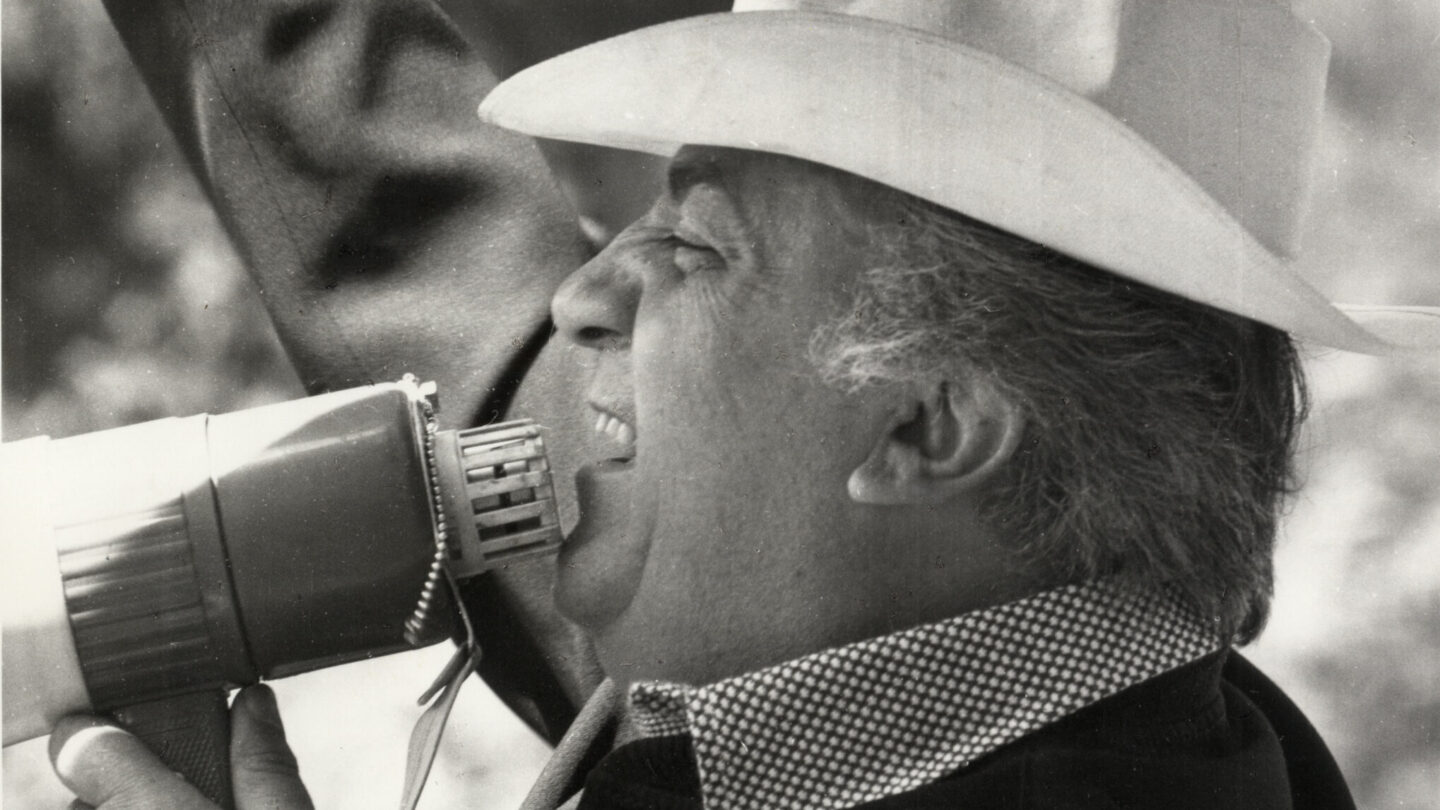Emory Cinematheque's new series focuses on movies by Italian film director Federico Fellini

With their surreal images and dreamlike qualities often rooted in memory, the films of Federico Fellini are among the most provocative, dazzling and innovative ever produced. Emory Cinematheque is screening several movies by the great Italian film director in a series titled “Federico Fellini: A Centennial Celebration.”
The screenings will be accompanied by Q&A sessions and lectures from Emory film and media studies professor Matthew Bernstein and senior lecturer of Italian studies Dr. Angela Porcarelli, both of whom joined “City Lights” host Lois Reitzes via Zoom to talk about the upcoming celebration.
Interview highlights follow below.
On Fellini’s prismatic portraits of Italy through 50 years of filmmaking:
“He started out with the Italian neorealists. He was a screenwriter and a humorist, but he was never one to just portray things happening in front of the camera as they are. He always had a lyrical, poetic approach, and his satirical perspective also means that he was making films about various people, various characters, with a great deal of compassion; but also a great deal of objective judgment,” said Bernstein. “He has an eye for the absurd things that happen in the world, and in Italy, and to people, and a very lyrical and tender way — but also, we almost say a surreal way — of presenting them.”
A comic approach to poignant storytelling:
“It’s really interesting that during an interview, he said, ‘My dream was always to become an adjective.’ So he had a great sense of humor, too,” Porcarelli added. “So what ‘Felliniesque’ means is this sort of carnival-like atmosphere, the baroque atmosphere that he creates in his movies, which is bizarre, and in a certain way, distant. But at the same time, what I love about Federico Fellini is how easy it is to relate to his characters, to share the feelings of these characters; the dreams, the illusions, disappointment.”
“Not many people know about his early career, but he started as a cartoonist and satirical writer in some magazines, and he kept this comic way of looking at things … and so he’s one of the characters himself. He’s not judging from the outside,” Porcarelli said.
Fellini in historical context, from fascism to Catholicism:
“Fellini starts his work in cinema during a period where neorealism was the prevalent cinematic style. It’s after the war, after the fascist period, and finally, there’s no censorship. And so people want to tell the history of Italy — the real Italy — and to talk about the miseries that were produced by the war, the history of resistance, and so on,” explained Porcarelli. “A movie that focuses on fascism is ‘Amarcord,’ and once again, we need to go back to this comic key. It deals with fascism with a comic approach, so there is not a strong condemnation. And this might seem as he’s pandered towards the Italian, but it actually makes it harder for Italian people to forget that comforts and convenience allowed them to go along with what was happening during fascism.”
“‘Nights of Cabiria’ is about a prostitute who is kind of trying to find love in the world and keeps getting disappointed,” said Bernstein. “There was one episode where she is walking home from work, and she encounters a character called ‘the man with a sack,’ and this is a ‘good Samaritan’ who goes around to the caves where poor Romans live and delivers them food or medical supplies. And she just kind of follows him around. And the Catholic church in Italy objected to this sequence because it showed someone not of the cloth being beneficent to the impoverished, and they insisted that the episode be taken out… They’ve got all his films under a microscope and looking for what’s offensive.”
Emory Cinematheque is screening the films of Federico Fellini through Nov. 30 on the Emory University campus. All screenings are on Wednesdays at 7:30 p.m. in White Hall, Room 208. The screening series is free and open to the public. A full schedule and more information are available at filmandmedia.emory.edu/news-events/emory-cinematheque.








